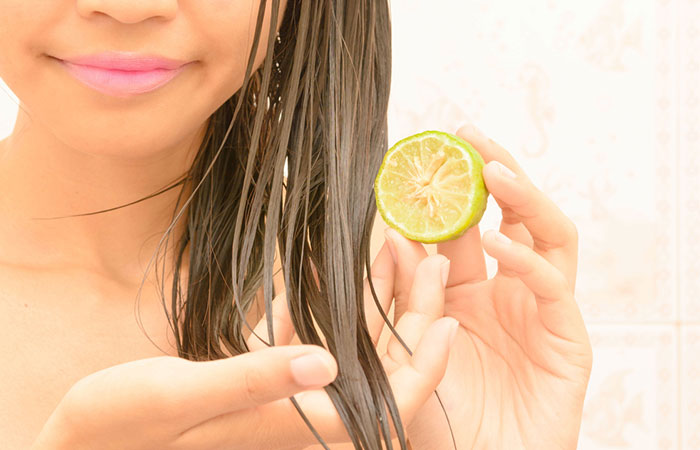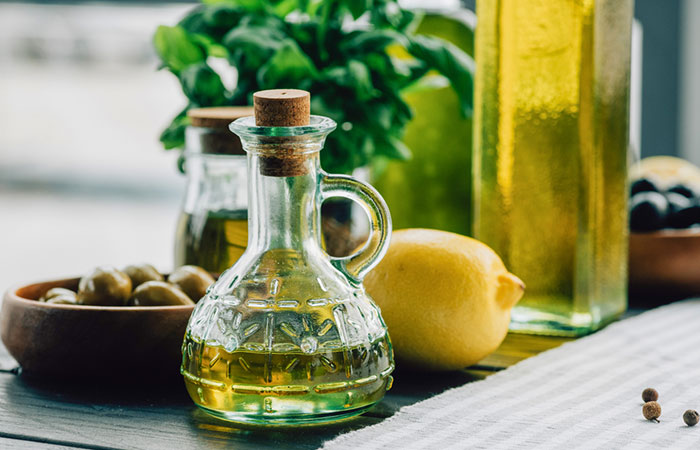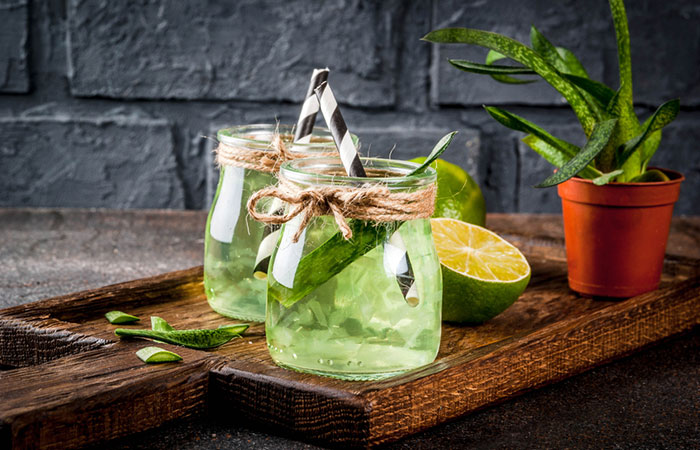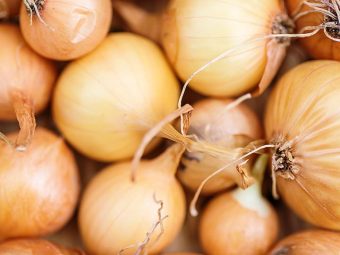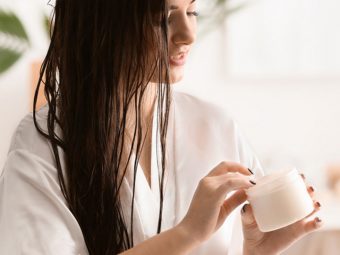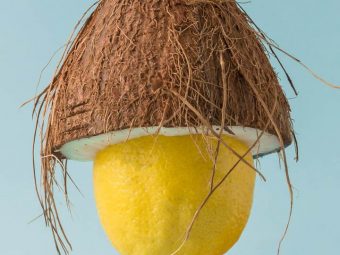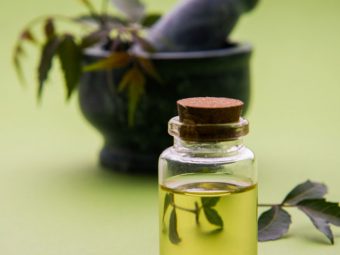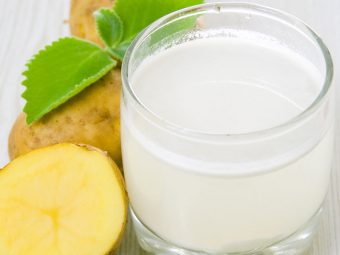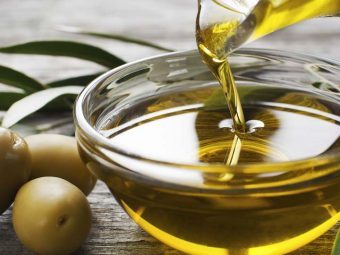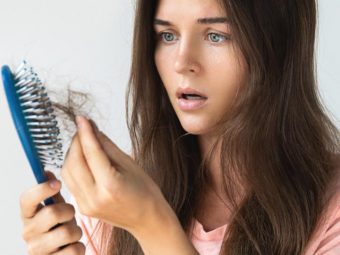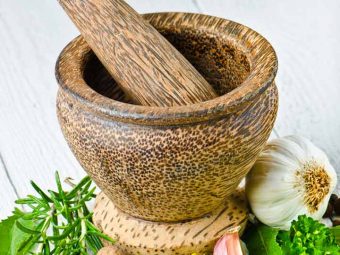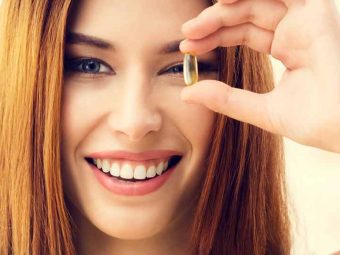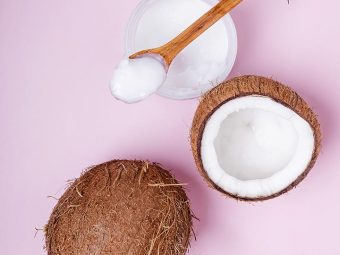7 Ways In Which Lemon Helps Hair Growth
This refreshing fruit is the perfect companion on your journey to thick and luscious hair.

Image: Shutterstock
There are multiple benefits of lemon for hair. It is often referred to as the “magic fruit,” and the citrus wonder is not only beneficial for the health, but it has also shown to be a potent element in numerous personal care products, whether for the skin or the hair!
Lemon has long been utilized in hair care products and masks to boost hair health. It promotes hair growth and prevents graying. So how does lemon manage to achieve it and is lemon actually good for hair? Continue reading to find out.
In This Article
Benefits Of Lemon For Hair Growth
Lemons are packed with nutrients, such as citric acid, calcium, magnesium, vitamin C, pectin, and flavonoids (1), (2). A lot of people are hesitant about putting lemon in their hair because of myths that claim it turns your hair gray, but that does not happen if you use it in moderation. Here’s why you should be putting lemon in your hair:
Lemon For Hair Growth
- Lemons are rich in vitamin C. This vitamin can improve the rate at which your hair grows by boosting the production of collagen (3), (4).
- It helps clean the scalp and unclog hair follicles. Clogging of the follicles often leads to issues, such as dandruff and hair fall.
- Lemon has antifungal properties (5). This can help maintain scalp health and curb issues like dandruff and scalp acne (6).
- It helps control the production of oil on your scalp.
Tinta, a vlogger, shared her experience of using a rinse made of lemon juice and guava water for her dandruff in the video. She said, “It was squeaky clean. The itchiness actually lessened alot (i).”
The following are seven ways in which you can use lemon to boost hair growth.
How To Use Lemon Juice For Hair Growth
1. Lemon Juice Treatment For Hair Growth
This treatment works well for people with oily and greasy hair. It gives your scalp a collagen boost, which, in turn, influences hair growth.
You Will Need
1/2 lemon
Processing Time
15 minutes
Process
- Squeeze the juice out of half a freshly cut lemon in a bowl.
- Massage your scalp with the juice for 5 minutes and then leave it in for an additional 10 minutes.
- Wash your hair with a mild sulfate-free shampoo and condition.
How Often?
Use once a week to maintain scalp and hair pH balance.
 Quick Tip
Quick Tip2. Lemon Shampoo For Hair Growth
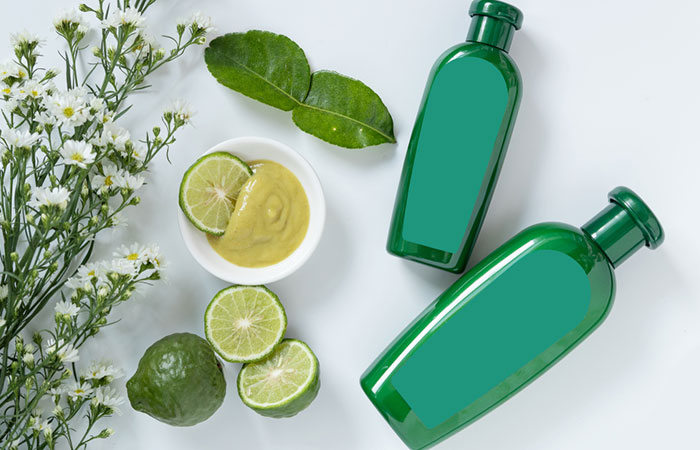
This hair pack is perfect for people who want to cover grays while boosting hair growth. Henna is a natural dye that contributes towards maintaining scalp health and reduces premature graying of hair and dandruff (7).
You Will Need
- 5 tablespoons pure henna powder
- 1 whole egg
- 1 cup warm water
- 1/2 lemon
Processing Time
1-2 hours
Process
- Combine the henna powder, egg, and warm water in a bowl until you get a thick paste.
- Squeeze the juice from one half of a freshly cut lemon into this mixture.
- Apply this mixture to your hair and scalp and leave it in until it dries. This should take 1-2 hours.
- Rinse the mixture out under cool running water.
How Often?
Use once a month for hair conditioning and covering grays.
3. Lemon Juice And Coconut Water
Coconut water has antioxidant properties (8). It helps prevent oxidative damage to the hair.
You Will Need
- 1 tablespoon lemon juice
- 1 tablespoon coconut water
Processing Time
20 minutes
Process
- Combine equal parts of coconut water and lemon juice in a bowl.
- Massage the mixture into your scalp and leave it on for 20 minutes.
- Wash it out with a mild sulfate-free shampoo.
How Often?
Once a week.
4. Lemon With Castor Oil And Olive Oil For Hair Growth
Anecdotal evidence suggests that castor oil can boost hair growth and help with scalp care. In combination with olive oil, it helps with hair repair, minimizes breakage, imparts hair shine, and improves the overall health of your hair. It can also improve hair porosity and hair elasticity. However, there is no scientific backing to this natural remedy.
You Will Need
- 2 tablespoons olive oil
- 1 tablespoon castor oil
- 4-5 drops lemon essential oil
Processing Time
45 minutes
Process
- Combine the ingredients in a bowl and heat it until slightly warm.
- Massage the hair strengthening oil blend into your scalp for about 15 minutes.
- Leave the oil in your hair for an additional 30 minutes.
- Wash your hair with a mild sulfate-free shampoo.
How Often?
Use 2-3 times a week for complete hair nourishment.
5. Lemon Rinse For Hair Growth
Anecdotal evidence suggests that lemon juice helps with scalp and hair cleansing. It gives your scalp a collagen boost and strengthens hair follicles.
You Will Need
- 1 tablespoon lemon juice
- 2 cups water
Processing Time
5 minutes
Process
- Dilute a tablespoon of lemon juice with two cups of water in a jug and set it aside.
- Wash your hair with a mild sulfate-free shampoo and condition it.
- Pour the diluted lemon juice through your hair as a final rinse.
- Do not rinse your hair further.
How Often?
Once a week.
6. Lemon Juice And Aloe Vera
Aloe vera is an excellent conditioning ingredient that improves scalp health with its antimicrobial properties (9).
You Will Need
- 2 tablespoons pure aloe vera gel
- 1 tablespoon lemon juice
Processing Time
30 minutes
Process
- Mix the aloe vera gel and lemon juice in a bowl.
- Apply this hair softening mixture to your scalp and hair until they are fully covered in the mixture.
- Leave the mixture on for 30 minutes and then rinse it out with a mild sulfate-free shampoo.
How Often?
Use 1-2 times a week for improved hair texture and scalp and hair conditioning.
7. Lemon And Honey Hair Mask
Honey works with the olive oil to seal the moisture in your hair shaft (10). It may also help with dandruff treatment (11). Rosemary essential oil soothes your scalp and keeps it healthy and induces hair growth (12). This pack may also add some subtle highlights to your hair while making it smooth and silky.
You Will Need
- 1 tablespoon lemon juice
- 2 tablespoons honey
- 2 teaspoons olive oil
- 3-4 drops rosemary essential oil
Processing Time
20 minutes
Process
- Mix the ingredients in a bowl.
- Apply this hair moisturizing mixture to your scalp and hair until they are fully covered in it.
- Keep it on for 20 minutes.
- Wash it out with a mild sulfate-free shampoo.
How Often?
Use once a week for hair hydration and softening.
 Quick Tip
Quick TipBefore you use any of these remedies for hair growth, here are a few things you should know.
Side Effects Of Lemon On Hair
The studies related to the side effects of using lemon on hair and skin are limited. However, you may experience irritation and redness after using lemon juice if you are allergic to it or any citrus fruit. Therefore, always perform a patch test before using lemon topically for the first time.
Also, anecdotal evidence suggests that using lemon juice for hair care may lead to dryness, breakage, damage, and brittle hair. This may be due to the pH of lemon juice, which is 2.2 (13). It means that the juice is acidic in nature. Lemon juice may also make your scalp and skin more sensitive to UV rays and lead to phytophotodermatitis (redness, blisters, and hyperpigmentation (14). Therefore, avoid sitting in the sun after using it.
Infographic: 7 DIY Lemon Remedies For Hair Growth
Lemon is an active component in various personal and healthcare products. It is said to induce freshness and rejuvenation. Similarly, lemon is used in hair care regimens to keep the scalp clean, unclogged, and provide hair protection. It has antifungal properties and is rich in vitamins. In the infographic below, find the top 7 ways to include lemon in your hair care routine to aid hair growth, based on your hair type and requirement.

Illustration: StyleCraze Design Team
Lemon is a popular ingredient used in various cosmetics and haircare products. Lemons are rich in vitamin C and flavonoids that promote collagen production, unclog your pores, cleanse the scalp, and boost hair volume. You can use lemon for your hair in combination with natural ingredients such as castor and olive oil, aloe vera, coconut water, or honey. Ensure that you conduct a patch test before using any of these ingredients. If you experience any adverse effects, stop using it immediately and consult your doctor.
Frequently Asked Questions
Can I apply lemon on oiled hair?
No. Oil creates a film on your hair strands, which prevents lemon juice from penetrating the strands.
Can I mix coconut oil with lemon juice?
Yes. You can warm coconut oil with lemon juice before applying it to your scalp.
Does lemon juice lighten gray hair?
Yes. Lemon juice works as a natural bleaching agent and lightens gray hair.
Key Takeaways
- The high levels of vitamins and minerals in lemon juice help boost collagen and improve hair growth.
- It can also cleanse your scalp, remove any buildup and help you reduce dandruff and hair fall.
- It can be combined with other components like honey, olive oil, and coconut oil to make homemade masks that hydrate your hair.
- Avoid using too much lemon as it can cause irritation and remember to dilute it.
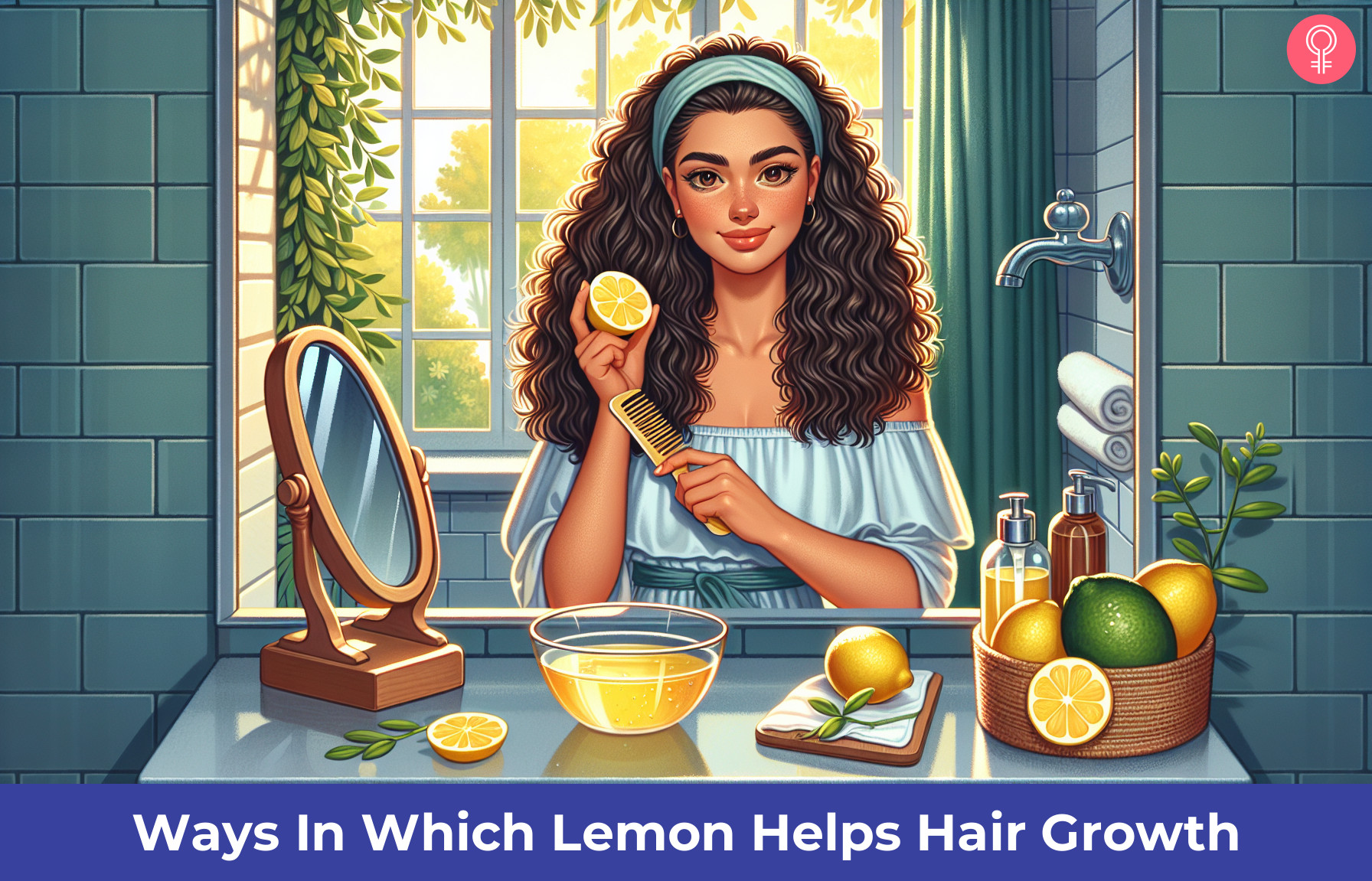
Image: Dall·E/StyleCraze Design Team
Discover how to grow thicker hair with lemon and lemon leaves! Watch this video to learn how to use this natural remedy to get the hair you have always wanted.
Personal Experience: Source
StyleCraze's articles are interwoven with authentic personal narratives that provide depth and resonance to our content. Below are the sources of the personal accounts referenced in this article.
i. 2 ways I used lemon for dandruff, an itchy & painful scalp/easy hair home remedies/treatment(2023)https://www.youtube.com/watch?v=EzlxMa3i6TI
References
Articles on StyleCraze are backed by verified information from peer-reviewed and academic research papers, reputed organizations, research institutions, and medical associations to ensure accuracy and relevance. Read our editorial policy to learn more.
- Klimek-Szczykutowicz, Marta et al. “Citrus limon(Lemon) Phenomenon-A Review of the Chemistry, Pharmacological Properties, Applications in the Modern Pharmaceutical, Food, and Cosmetics Industries, and Biotechnological Studies.” Plants (Basel, Switzerland) 9,1 119.
https://www.ncbi.nlm.nih.gov/pmc/articles/PMC7020168/ - Lv, Xinmiao et al. “Citrus fruits as a treasure trove of active natural metabolites that potentially provide benefits for human health.” Chemistry Central journal 9 68.
https://www.ncbi.nlm.nih.gov/pmc/articles/PMC4690266/ - Telang, Pumori Saokar. “Vitamin C in dermatology.” Indian dermatology online journal 4,2 (2013): 143-6.
https://www.ncbi.nlm.nih.gov/pmc/articles/PMC3673383/ - Kim, Dan-Bi et al. “Antioxidant and anti-ageing activities of citrus-based juice mixture.” Food chemistry 194 (2016): 920-7.
https://pubmed.ncbi.nlm.nih.gov/26471635/ - Oikeh, Ehigbai I et al. “Phytochemical, antimicrobial, and antioxidant activities of different citrus juice concentrates.” Food science & nutrition 4,1 103-9.
https://www.ncbi.nlm.nih.gov/pmc/articles/PMC4708628/ - Zaid, Abdel Naser et al. “Ethnopharmacological survey of home remedies used for treatment of hair and scalp and their methods of preparation in the West Bank-Palestine.” BMC complementary and alternative medicine 17,1 355.
https://www.ncbi.nlm.nih.gov/pmc/articles/PMC5499037/ - Pal, Rashmi Saxena, et al. “Synthesis and Evaluation of Herbal Based Hair Dye.” The Open Dermatology Journal1 (2018).
https://www.researchgate.net/publication/328388284_Synthesis_and_Evaluation_of_Herbal_Based_Hair_Dye - Prathapan, A., and T. Rajamohan. “Antioxidant and antithrombotic activity of tender coconut water in experimental myocardial infarction.” Journal of Food Biochemistry5 (2011): 1501-1507.
https://onlinelibrary.wiley.com/doi/abs/10.1111/j.1745-4514.2010.00471.x - Surjushe, Amar et al. “Aloe vera: a short review.” Indian journal of dermatology 53,4 (2008): 163-6.
https://www.ncbi.nlm.nih.gov/pmc/articles/PMC2763764/ - Saranraj, P., and S. Sivasakthi. “Comprehensive review on honey: Biochemical and medicinal properties.” Acad. Ind. Res6.10 (2018): 165.
https://www.researchgate.net/publication/324835659_Comprehensive_Review_on_Honey_Biochemical_and_Medicinal_Properties - Al-Waili, N. S. “Therapeutic and prophylactic effects of crude honey on chronic seborrheic dermatitis and dandruff.” European journal of medical research7 (2001): 306-308.
https://www.ncbi.nlm.nih.gov/pubmed/11485891 - Panahi, Y., et al. “Rosemary oil vs minoxidil 2% for the treatment of androgenetic alopecia: a randomized comparative trial.” Skinmed1 (2015): 15-21.
https://www.ncbi.nlm.nih.gov/pubmed/25842469 - “pH of selected foods.” United States Department of Agriculture
https://pmp.errc.ars.usda.gov/phOfSelectedFoods.aspx - Au, Stephanie. “Orange and sunlight: A recipe for blisters.” World J Plast Surg. 2017 May; 6(2): 260–262.
https://www.ncbi.nlm.nih.gov/pmc/articles/PMC5506369/





